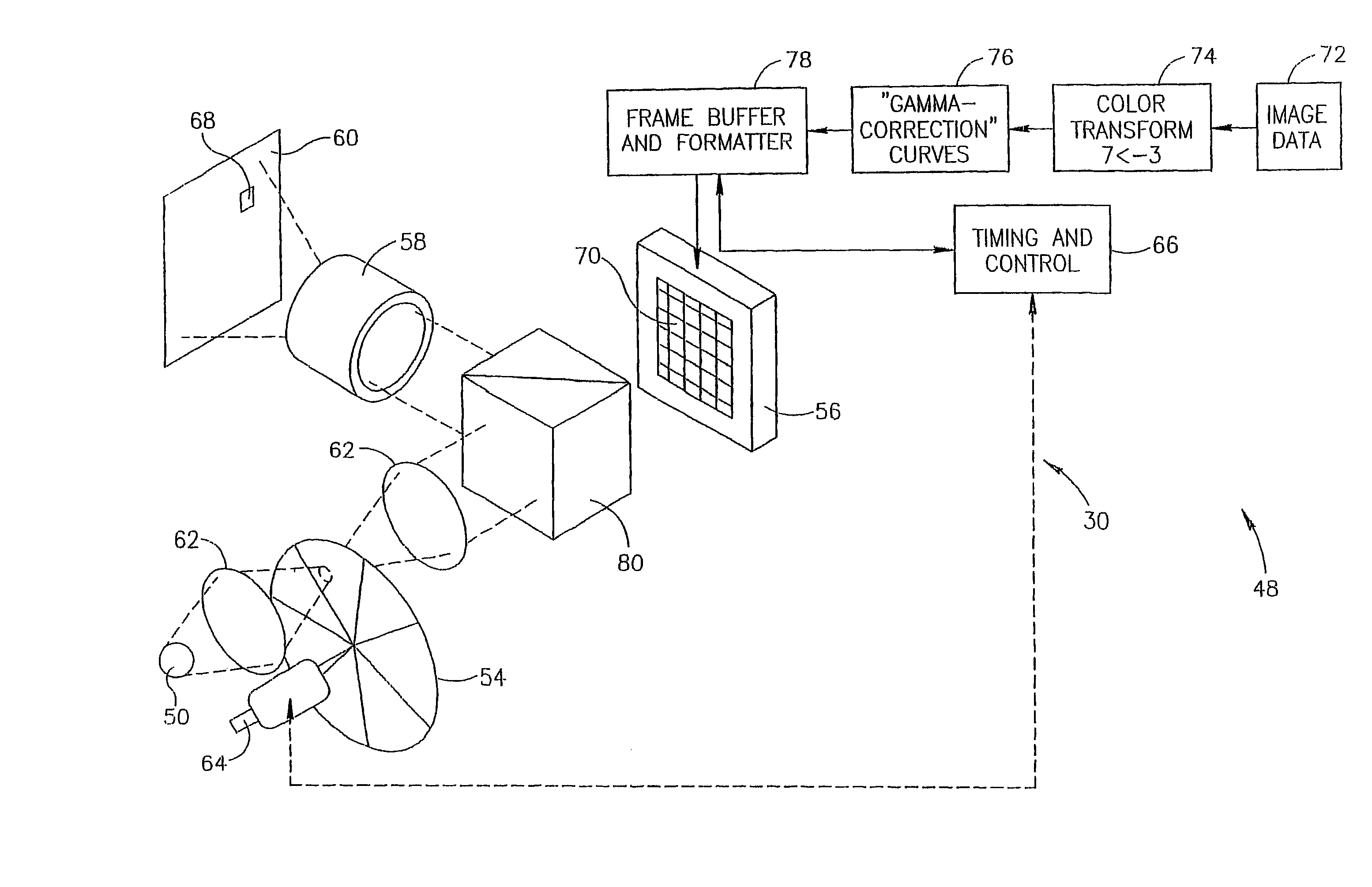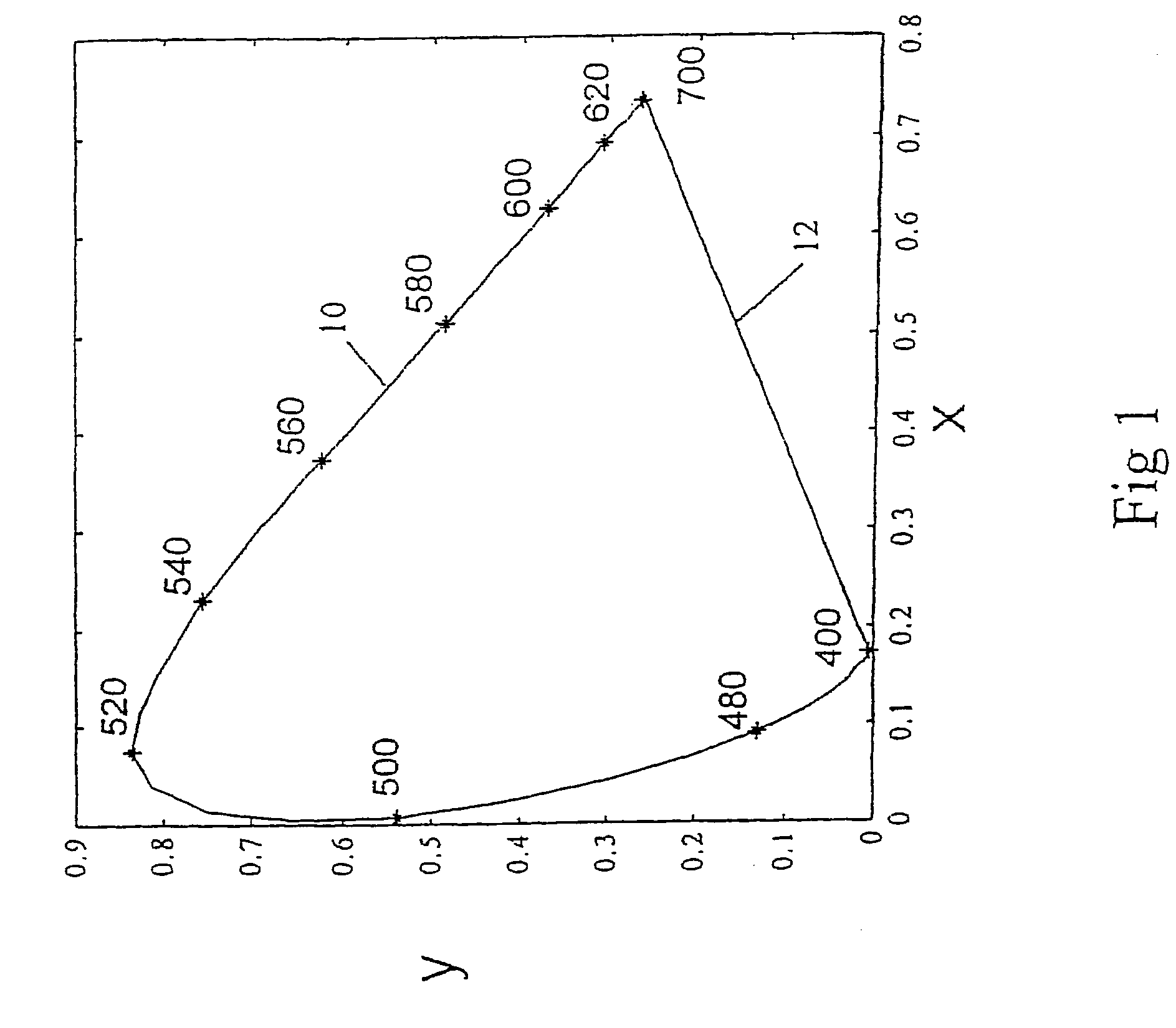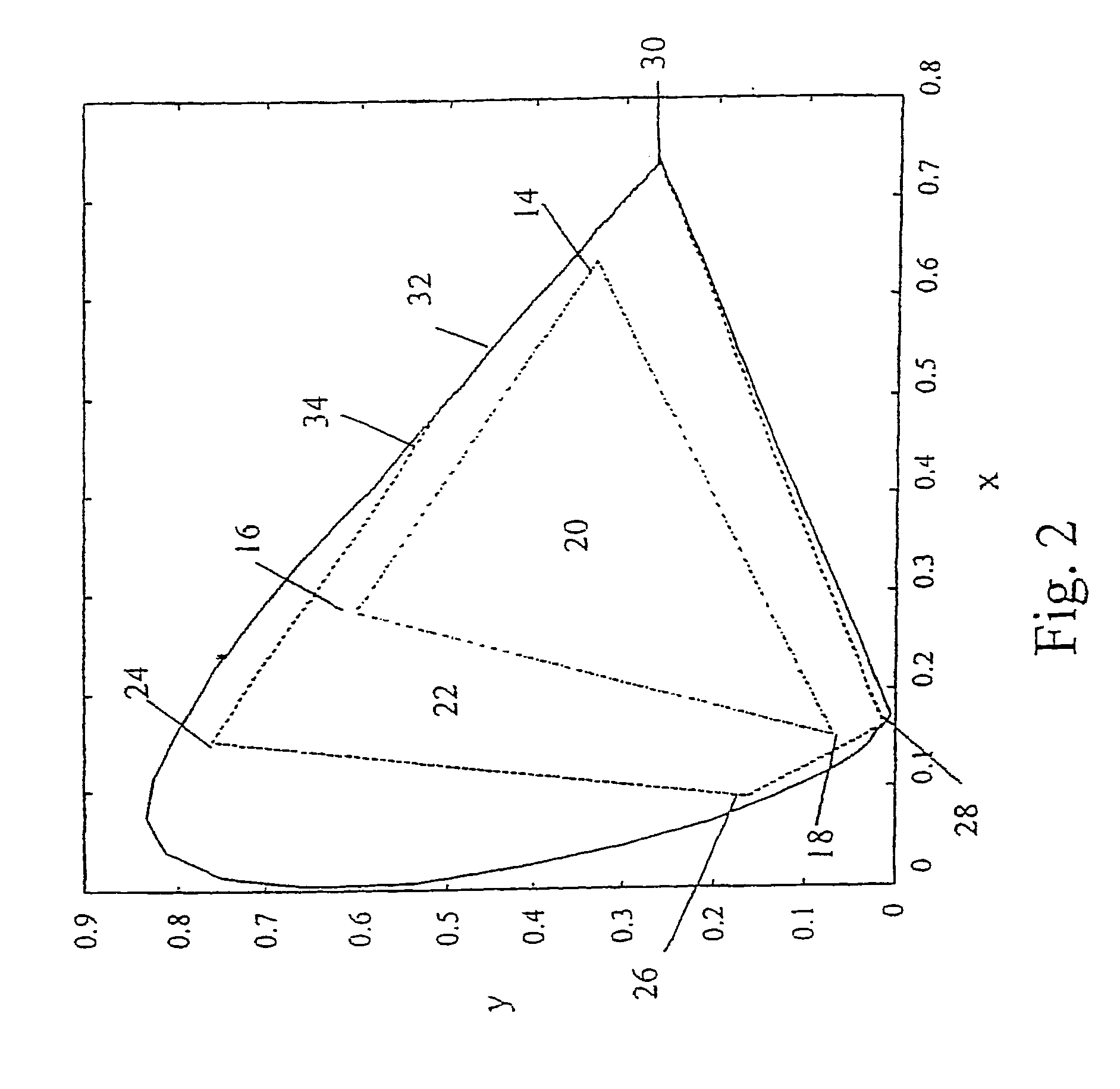Device, system and method for electronic true color display
a technology of electronic true color and display device, applied in the direction of image reproducers using projection devices, identification means, instruments, etc., can solve the problems of inability to produce physical devices, certain colors cannot be adequately represented mathematically, and the spectra still falls short of the complete gamut of colors visible to the human eye, so as to increase the probability of different human observers and increase the accuracy of colors
- Summary
- Abstract
- Description
- Claims
- Application Information
AI Technical Summary
Benefits of technology
Problems solved by technology
Method used
Image
Examples
Embodiment Construction
[0037]In the following description, various aspects of the present invention will be described. For purposes of explanation, specific configurations and details are set forth in order to provide a thorough understanding of the present invention. However, it will also be apparent to one skilled in the art that the present invention may be practiced without the specific details presented herein. Furthermore, well known features may be omitted or simplified in order not to obscure the present invention.
[0038]An embodiment of the present invention provides a device, system and a method for displaying an expanded gamut of colors. The present invention is suitable for various types of electronic display devices, for example televisions and monitor devices (“monitors”) for computational devices. An embodiment of the present invention operates by using more than three primary colors. As previously described, the term “primary color” specifically does not include light from a white or polych...
PUM
| Property | Measurement | Unit |
|---|---|---|
| wavelengths | aaaaa | aaaaa |
| wavelengths | aaaaa | aaaaa |
| wavelengths | aaaaa | aaaaa |
Abstract
Description
Claims
Application Information
 Login to View More
Login to View More - R&D
- Intellectual Property
- Life Sciences
- Materials
- Tech Scout
- Unparalleled Data Quality
- Higher Quality Content
- 60% Fewer Hallucinations
Browse by: Latest US Patents, China's latest patents, Technical Efficacy Thesaurus, Application Domain, Technology Topic, Popular Technical Reports.
© 2025 PatSnap. All rights reserved.Legal|Privacy policy|Modern Slavery Act Transparency Statement|Sitemap|About US| Contact US: help@patsnap.com



